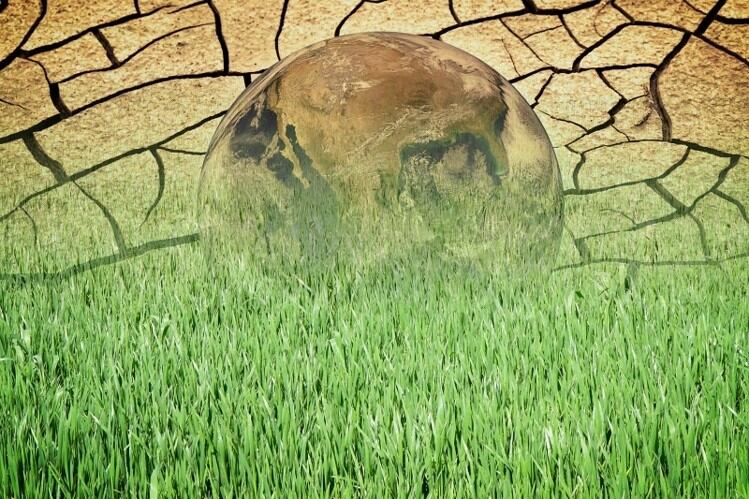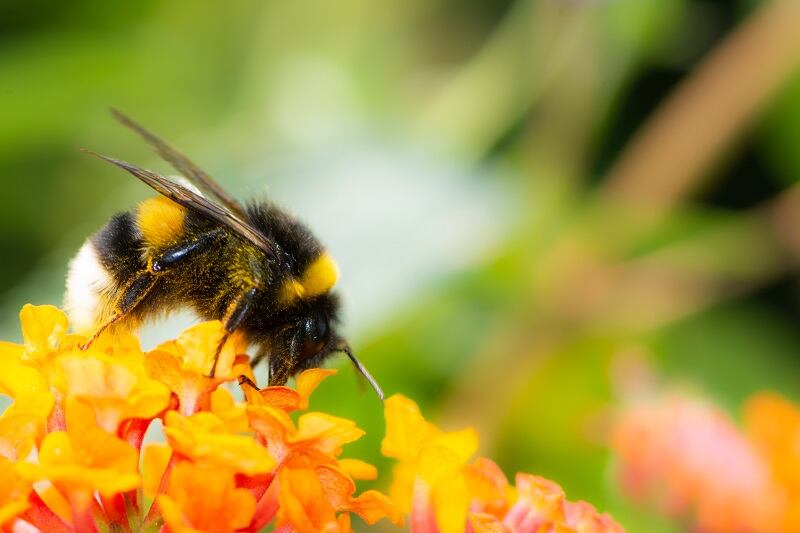Biodiversity and nature loss – and the interplay with climate change - has come to be recognised as one of the greatest challenges facing the world today.
Last week the United Nations hosted its first ever summit on biodiversity with the ambition of fostering an international political consensus for action ahead of the Convention on Biodiversity’s Conference of the Parties (COP15). This event will take place in Kunming, China, in 2021, and it is hoped that world leaders will agree to an ‘ambitious plan of action on biodiversity’ similar to the Paris Agreement on climate change.
“Kunming needs to turn biodiversity into a household concern and political issue. Everyone must realise the risks of inaction,” stressed Volkan Bozkir, President of the UN General Assembly.
The need to mobilise concrete action to stem biodiversity loss is clear. Since 1970, the planet has seen a 68% loss in vertebrates, Bozkir noted.
When it comes to food production, concerns over the declining insect populations are equally grave. One European study found that between 1990 and 2017 63 protected nature areas in Germany saw a seasonal decline of 76% in flying insect biomass.
Loss of insect populations could result in cascading effects on food webs and jeopardise ecosystem services.
According to the latest report from the Intergovernmental Platform on Biodiversity and Ecosystem Services (IPBES), more than 75% of the world's crops producing fruits and seeds for consumption depend on animal pollination, of which a third are pollinated solely by bees.
The potential financial cost of declining insect populations runs into the billions, IPBES noted. The annual value of agricultural production threatened by the loss of pollinators would amount to €530 billion, the organisation estimated.
The threat is deepening as biodiversity loss continues to gain momentum and international targets on biodiversity loss – set a decade ago – are missed.
As the fifth edition of the Global Biodiversity Outlook notes, ‘the natural world is suffering badly and getting worse’. The report found that if the world continues on its current trajectory, biodiversity, and the services it provides, will continue to decline, putting the UN’s Sustainable Development Goals at risk.
The outlook concluded that the current concerning trend is projected to continue until 2050 and beyond, due to the increasing impacts of land and sea use change, over-exploitation, climate change, pollution and invasive alien species. These pressures are in turn being driven by unsustainable patterns of production and consumption, population growth and technological developments.
COVID-19 and hopes for a ‘nature-friendly’ recovery
While the seriousness of the situation is not to be underestimated, the UN conference also heard that the potential upside to action could yield positive social and economic results, particularly as the worldwide economy looks to rebound in the wake of the coronavirus crisis.
The COVID-19 pandemic is challenging people to rethink their relationship with nature, according to the UN. Advocates hope that socio-economic recovery from COVID-19 can be made ‘nature-friendly’, by embracing the need to tackle climate change and biodiversity challenges.
Taking this tact can help boost local economies as well as reset our relationship with nature. The UN noted various success stories: Where fisheries have been regulated and reported, stocks have improved; where coordinated action has been taken to slow deforestation, habitat loss has been controlled; ecosystem restoration, when implemented effectively and with the support of local populations, has reversed decades of degradation; and watershed protection can save billions of dollars needed for expensive filtration, experts argued.

Reflecting on the UN General Assembly, Danone CEO Emmanuel Faber observed that there is a growing sense of urgency to act on biodiversity. “One clear aspect for me was that the nature and climate agenda to be linked together as solutions for the future. We have broken the link with nature and its high time that we make a new alliance with it. Now.”
The French chief executive stressed the importance of food production to recovery – from the impact of COVID-19 and the destruction being wrought on the natural world.
“At the core of the recovery strategy there is this fundamental notion that the health of people and the health of the planet are intertwined. To that end, there has been a long missing link which is the way we farm agriculture. I was really pleased to hear this year that the words ‘regenerative agriculture’ are really considered as a foundation for a resilient recovery.”
Big business backs biodiversity call
For Faber, a collaborative, multilateral approach is needed to deliver the system-wide changes needed to turn the tide on biodiversity loss. “What is now needed is a fundamental recommitment by world leaders for collaboration, for multilateralism and for transformative actions urgently for the recovery. You can count on business to support this agenda.”
Efforts like the Business for Nature and the One Planet Business for Biodiversity coalition have seen global FMCG corporations come together to call for increased efforts to realign the relationship between production and the natural world.
On the same day that the UN General Assembly adopted its 75th declaration recognising the ‘urgent need’ for Member States to protect our planet and build back better, more than 560 companies with combined revenue of US$4 trillion issued a call for governments to support policies reversing nature loss.
The joint statement, put together by Business for Nature and singed by the likes of Danone, Walmart, DSM, Unilever and Diageo, read: “Healthy societies, resilient economies and thriving businesses rely on nature. Governments must adopt policies now to reverse nature loss in this decade. Together let's protect, restore and sustainably use our natural resources.”
The need for decisive policy is a pressing issue – both for the environment and business performance, Walmart president and CEO Doug McMillon stressed.
“Nature sustains life let alone the products our customers rely on. We must reverse nature loss before we reach a tipping point from which ecosystems will not recover."
Business for Nature’s Call to Action is the first time so many businesses have stepped forward with the ambition of influencing discussions in the run up to delivering a Post-2020 Global Biodiversity Framework.
“It is exciting and unprecedented to see so many businesses urging for bold government action to reform nature policies,” Eva Zabey, Executive Director, Business for Nature said. The move is important because it increases pressure for ‘positive political ambition’ on nature loss and climate change, she suggested.
As Geraldine Hatchett, Co-CEO and CFO at DSM stressed, business can only go so far alone. “To succeed… we also need strong policy. Because to truly reverse nature loss will require collaboration across sectors, across value chains and with the support of global leaders.”

Is a political consensus emerging?
As with any intra-governmental effort, the real challenge to COP15 lies in getting the interests of all parties aligned so that a course of action can gain consensus approval.
Some governments and regions are clearly ready to adopt political and economic policies that support the rejuvenation of biodiversity.
The Leaders Pledge for Nature saw 64 leaders from five continents, including the European Union, sign up to a ten-point commitment that aims to restore the balance with nature. Governments including France, Germany and the UK backed a renewed effort to reduce deforestation, halt unsustainable fishing practices, eliminate environmentally harmful subsidies and transition to sustainable food production systems.
The pledge read: “Despite ambitious global agreements and targets for the protection, sustainable use and restoration of biodiversity, and notwithstanding many local success stories, the global trends continue rapidly in the wrong direction. A transformative change is needed: we cannot simply carry on as before.”
Other signatories to the pledge included Bangladesh, Bhutan, Colombia, Costa Rica, Fiji, Kenya, Seychelles and Mexico.
However, as the UN summit highlighted, we are some way from achieving global consensus on biodiversity.
The US, Brazil, China, Indonesia, Russia and Australia are among those who have not signed the Leaders Pledge for Nature and the US did not field a speaker for the Biodiversity event, even though it was hosted in New York. Meanwhile, Brazil’s president Jair Bolsonaro insisted the country’s agricultural business were already subject to ‘the best environmental legislation on the planet’ and argued that the country faces a ‘brutal disinformation campaign’ over deforestation in the Amazon.

